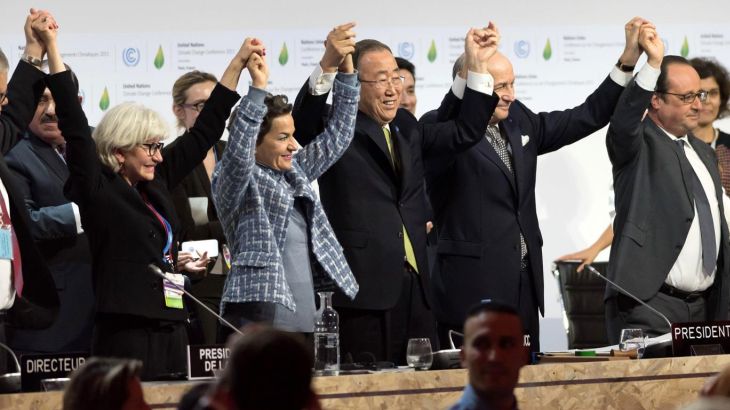Representatives from 195 countries reached in Paris a consensus on a global environmental agreement that requires each country to reduce emissions of greenhouse gases and to give more importance to businesses dealing with the introduction of cleaner technologies.
To enter into force, the agreement needs to be ratified by 55 states with a minimum share of 55% in total emissions. After 2020 the Kyoto treaty will not be active anymore, and the provisions of Paris agreement will be applied, a treaty with legal force, whose negotiation and drafting lasted more than 20 years.
In essence, the agreement pledges to limit the global warming to a maximum 2 degrees Celsius compared to pre-industrial era. An intermediate target of 1.5 degrees is acceptable, impacting the removal of fossil fuels from the economy. The contributions of each state will be first reviewed in 2023 and then in cycles of five years.
According to the agreement, developed countries assume greater responsibility with respect to reducing absolute emissions, and cooperate with less developed countries to help them reach their goals.
However, developing countries were given little concession, but financial aid is one of them. Financial contributions made by rich countries to the less fortunate will reach around 100 billion dollars each year by 2020.
A new mechanism was created to protect small and vulnerable island states threatened by natural disasters. These will receive a partial financial help to repair their losses in case disaster strikes.
